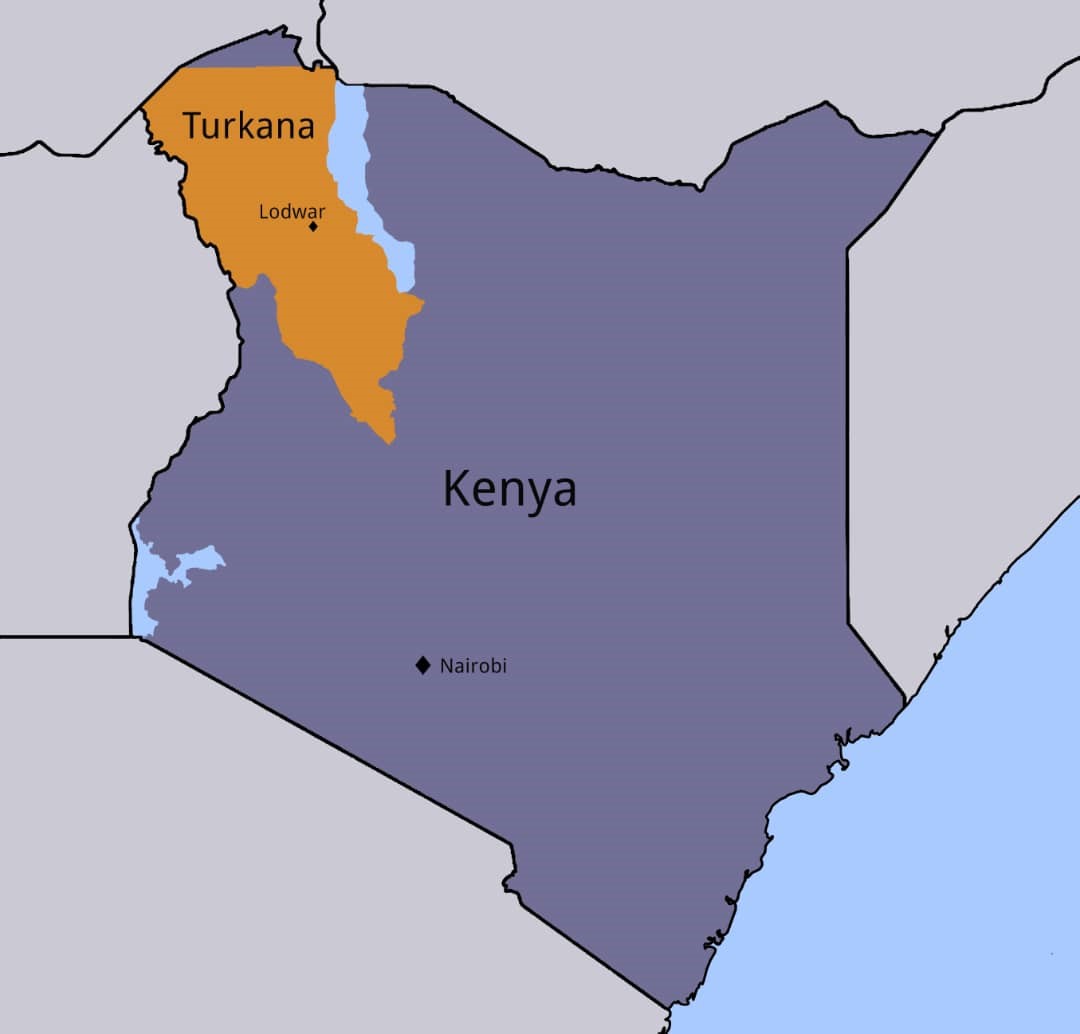By: Modupe Adeniyi. Freelance Health Reporter.

Map of Kenya showing Turkana County
FRIDAY, JULY 5, 2024. Communities along the shoreline of Lake Turkana are facing significant health challenges due to a long-standing tradition: preserving fish through smoking in wood-fired mud ovens.
The impact of this practice is becoming increasingly apparent. Jane Lemuya, a fish trader in Kalokol town, shares her experience: "Even if I experience headaches associated with fish smoking, there is no other source of income that I can easily switch to." This sentiment echoes throughout this community where fishing is the primary livelihood.
The health effects are alarming. Locals report poor eyesight, burning eyes and dizziness. These symptoms align with previous studies linking smoke exposure to eye problems such as cataracts and age-related macular degeneration.
In 2021, the Turkana County government took action by imposing a ban on fish smoking in residential areas. The ban aimed to improve sanitation and hygiene particularly in Kalokol town and nearby centers which frequently battle cholera outbreaks due to open defecation.
Jacob Mutua, a county principal environment officer, highlights the severity of the situation: "Kalokol town and its environs were displaying noticeable evidence of air pollution and improper waste disposal affecting the environment and aquatic ecosystem, which supports many livelihoods."
Despite these efforts, the practice continues. The designated fish processing site at Naparpari remains underutilized. Francis Emanikor, a National Environmental Management Authority (NEMA) official, stresses the importance of using this site: "Avoid processing fish at undesignated sites as this makes it challenging to control smoke production."
The issue extends beyond air pollution. Indiscriminate solid and liquid waste dumping in non-designated areas compounds the environmental concerns. This not only affects the local ecosystem but also poses additional health risks to the community.
Looking forward, officials are calling for a multi-faceted approach. Emanikor advocates for "frequent clean-up exercises, sensitisation of locals on proper waste disposal and negative effects of fish smoking, and stringent measures to control environmental degradation."
The stakes are high. Kalokol town is attracting traders from as far as the Democratic Republic of Congo. Maintaining public health standards is crucial for the region's economic growth and the well-being of its residents.
As Kenya grapples with balancing tradition, economic needs, and public health, the situation in Lake Turkana serves as a stark reminder of the complex challenges facing many developing communities. It underscores the urgent need for sustainable solutions that protect both livelihoods and health.
Source: The Nation Kenya News.
Published: July 5, 2024
© 2024. Datelinehealth Africa Inc. All rights reserved.
Permission is given to copy, use and share content for non-commercial purposes without alteration or modification and subject to source attribution.
DATELINEHEALTH AFRICA INC., is a digital publisher for informational and educational purposes and does not offer personal medical care and advice. If you have a medical problem needing routine or emergency attention, call your doctor or local emergency services immediately, or visit the nearest emergency room or the nearest hospital. You should consult your professional healthcare provider before starting any nutrition, diet, exercise, fitness, medical or wellness program mentioned or referenced in the DatelinehealthAfrica website. Click here for more disclaimer notice.